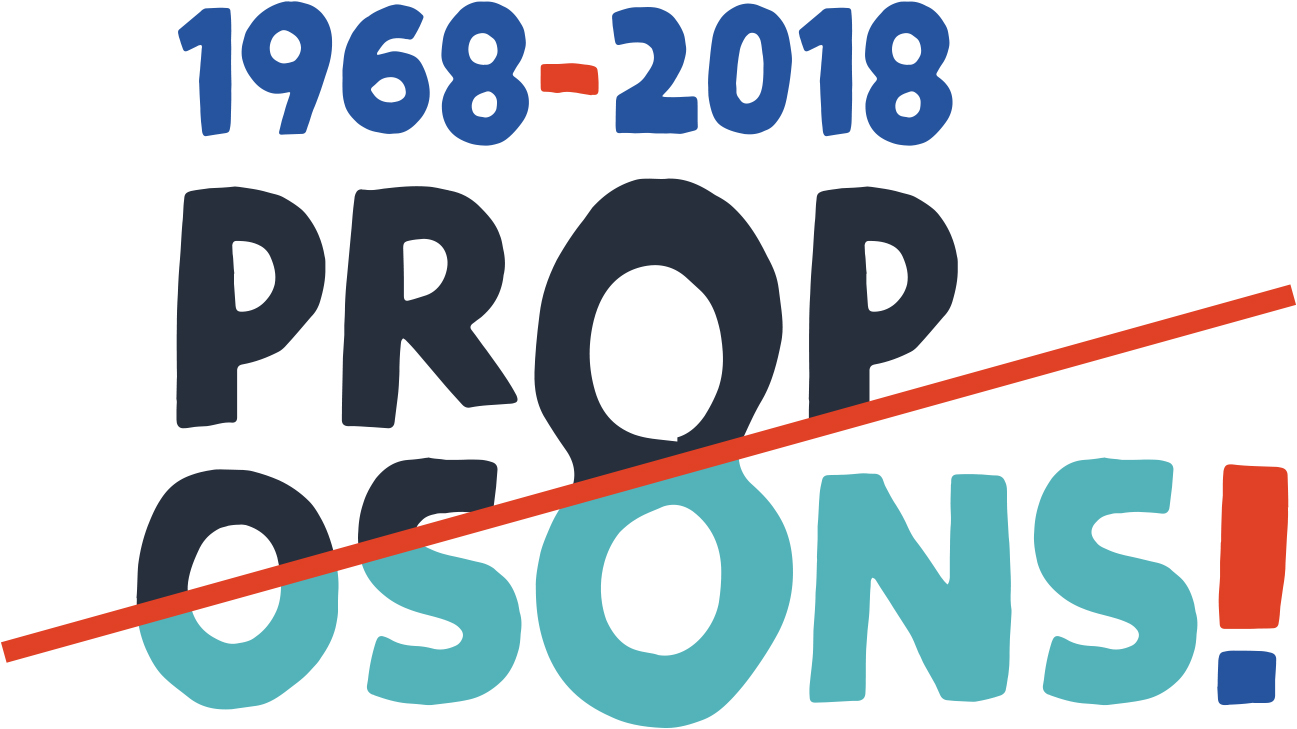Poets and Poetry
Responsables :
Penelope Galey-Sacks (Valenciennes)
Sara Greaves (Aix-Marseille)
Atelier I
Jeudi 7, 15h30-18h30
Salle V405
15h30
Alexandra Kraeva
Université Haute-Alsace (ILLE)
Art – Regime: From Rebellion to Exile (A Poetic Vision of Gjertrud Schnackenberg)
Contemporary American poet Gjertrud Schnackenberg raises an important topic for analysis about how people within the arts confronted regimes while she creates her own images of Polish composer Frederic Chopin and Russian poet Osip Mandelstam in her sequences Kremlin of Smoke and A Monument in Utopia. Schnackenberg writes of two cases, that of Chopin’s political controversial position well-known to the governors, and that of Mandelstam involved in his personal poetic rebellion against Stalin and the Soviet regime. Both represent a stunning example of rebels (and even martyrs!) defending humanistic values with their art, which Schnackenberg revisits in her works. In my talk I will attempt to analyze how poetry becomes a tool that permits Schnackenberg to illustrate the dichotomy between art and regime. I will also consider the reason Why Schnackenberg exploits the concepts of rebellion and exile and look at the images she creates in order to connect them within the spatiotemporal paradigm of the text.
16h05
Adam Clay
University of Edinburgh, independent researcher
Emerson’s Poetics and the Ethics of Care
Ralph Waldo Emerson’s ideas on poets and poetry contain a call to pay careful attention to the ordinary. This call is more than a literary statement, it is also a political one, tied to a revolutionary call for self-reliance and for the recognition of local, individual, and ordinary American voices, as opposed to traditional, established, European ones. It constitutes, this paper contends, a call for care which can be philosophically linked to ideas expressed by contemporary care-ethicists such as Jane Tronto. French philosopher Sandra Laugier points out this connection: “the ethics of care draws our attention to the ordinary, to what we are unable to see, though it is right before our eyes.” The ethics of care and Emerson’s texts on poetry thus share, this paper argues, a politically charged call for change and for the acknowledgement of what philosophers have traditionally overlooked and disregarded.
16h40
Eugene Brennan
Université Sorbonne Nouvelle and Institut Catholique de Paris (PRISMES)
The Dialectics of Utopia in Times of Crisis: Commune Editions and the Political Turn in Contemporary American Poetry
In the aftermath of the Occupy Oakland movement of 2011, the poets Joshua Clover, Juliana Spahr and Jasper Bernes founded the publishing house Commune Editions. Its stated aim is to be a “purveyor of poetry and other antagonisms”. Their poetry has a renewed sense of political militancy while also maintaining a commitment to formal and intellectual experiment. For these poets, poetry is not intrinsically revolutionary and it does not constitute resistance. Moreover, their aesthetic pessimism is matched by a political pessimism. My paper will focus on Clover’s poetry collection Red Epic (2015) in dialogue with his political theory, and examine the ways in which Clover’s poems offer unflinching treatments of the dystopianism of contemporary capitalist crisis, while simultaneously insisting on the possibility of political agency and a revolutionary horizon. The paper will thus attempt to give a more precise account of the relationship of poetry to revolutionary politics.
17h15
Nina Zivancevic
Université de Paris 1, Panthéon-Sorbonne (Laboratoire New Avant-Garde(s) in Literature and Arts)
Does a literary work (as in Frank O’Hara’s) follow a revolution (of a word), or does it precede it in a new, (American) context?
Does a literary work simply chronicle revolutions or can it change the world? Was each formal revolution which ushered in a new phase of literary history just the reflection of a change in the way writers saw the world or did it create new ways of representing this change? I tried to answer questions such as these in my first doctoral dissertation, “Mayakovsky and his influence on contemporary American poetry” (1982). What happens when the “natural speech” model inherited from the Modernists comes up against the “natural speech” of the “talk show,” or when visual poetics respond to the languages of billboards and sound bytes? What makes a piece of writing revolutionary, indeed? Is it when it is revolutionary in form, as is the case with Vladimir Mayakovsky? Or is it revolutionary in its content, as exemplified in Frank O’Hara’s poetry, such that it starts converting its form as well?
17h50
Angélique Thomine
Lycée Jean Drouant / OVALE (Sorbonne Université)
‘I have gone out, a possessed witch’: sorcières et chasse aux sorcières, de la révolution littéraire aux réappropriations culturelles
Situées dans le contexte historique de la Guerre froide, l’oeuvre de Plath et celle de Sexton ont en commun la récurrence, la résurgence de la figure de la sorcière venant hanter à la fois leur imaginaire et leur réflexion, de la figure de l’écrivaine possédée chez Sexton à celle de la sorcière des contes de fées chez les deux poètes. À l’image de Plath dans « Metamorphoses of the Moon », ce papier pose la question de « which is which? », ou plutôt which is witch? ou encore which hunts? En traitant les questions de l’inceste et de la domination masculine dans leurs oeuvres, Plath et Sexton étaient-elles en avance sur leur temps, comprenant les enjeux sociétaux qui aillaient révolutionner notamment les cinq dernières décennies ?
Atelier II
Vendredi 8, 9h-10h30
Salle V405
9h
Isabelle Keller-Privat
Université Toulouse 2 Jean Jaurès (Laboratoire Cultures Anglo-Saxonnes)
When the dream of revolution enters the City: Gascoyne’s ‘rendez-vous with the Unknown’ in Night Thoughts
In one of his lectures on poetry, David Gascoyne wonders: “In what sense is lyrical poetry revolutionary? Surely, all true, living poetry is today in a certain sense, revolutionary. It is difficult to imagine a state of society more hostile to the very existence of poetry than twentieth-century capitalist society. […] If the spirit of poetry is, as Eluard says, ‘a perpetual struggle, life’s very principle, the queen of unrest’, how can it be reconciled with a system whose aim is to make men passive, docile, complacent and smug?” This paper will delve into the politics of Gascoyne’s poetics and his definition of the poet’s role in society. This will lead us to consider the poet’s prophetic function and the philosophical import of Night Thoughts conveyed by a singular voice. Gascoyne’s revolutionary dream ushers in a redemption that relates the distraught subject to the Other: such is the revolution of hospitality.
9h30
Sophie Mayer
Université Sorbonne Nouvelle – Paris 3 (PRISMES)
D’un couronnement à un autre : la révolution spirituelle et poétique d’Emily Dickinson
Le terme de « révolution » cadre mal, a priori, avec l’idée que l’on se fait d’Emily Dickinson (1830-1886). Pourtant, sa poésie possède une aura révolutionnaire, et ce non seulement du fait d’expérimentations langagières inédites (ses fameux « tirets », sa grammaire licencieuse, ses néologismes inouïs), mais également du fait de la position aussi subversive qu’ambivalente qu’elle adopta à l’égard de son héritage religieux. On se rappellera, en effet, que Dickinson refusa de se convertir dans les termes imposés par sa communauté religieuse ; sa « conversion » eut lieu, malgré tout, mais sur la scène poétique. D’une conversion à l’autre, un transfert s’est accompli, une transformation intérieure décisive ayant valeur de prise de déclaration d’indépendance et de pouvoir poétique. C’est sur cette conversion-révolution que je souhaite revenir, en examinant un poème de révolte particulièrement violent : « I’m ceded − I’ve stopped being Theirs − », J508/ F353).
10h
Aurélien Saby
Lycée Hélène Boucher (Paris) / VALE (Sorbonne Université)
In conversation with John Fuller
John Fuller’s latest book, The Bone Flowers (2016), a ten-part narrative poem, taps out the rhythms of life against the riddle of time through the story of Billy Emerald who will become a successful art collector and philanthropist. As Theophilus Kwek notes in Oxford Poetry, The Bone Flowers is “brimming with […] lived detail, and well-timed political barbs […]”. Whether it may be considered a “revolutionary” piece remains a moot point, though. Obviously, it is neither revolutionary in terms of politics nor in form… But, isn’t it somehow “revolutionary”, or “counter-revolutionary” — or both — to stick to traditional forms at a time when most poets endeavour to explore the most unsuspected modes of writing? Furthermore, poetry may engender soft or deeper revolutions of sorts in the readers’ minds. Thus, it might be worth interviewing John Fuller himself on such questions before discussing his answers on the occasion of the poetry workshop of June 2018.
Atelier III
Samedi 9, 9h-10h30
Salle V405
9h
Emilie Loriaux
Université d’Artois (Textes et Cultures,‘Translittéraires’)
Dorset poets, philological thoughts: an innermost revolution towards the English (poetic) language
From the middle of the 19th century until publication of the first edition of the Oxford English Dictionaries in 1888, language and linguistics were central to philological debates among intellectual circles. Two prominent figures during these discussions were William Barnes (1801-1886) and Thomas Hardy (1840-1928), who both challenged or resisted the standardization of the English language. In 1908 Hardy published a selection of Barnes’s poems, in which he introduces modifications from the original version (he cuts stanzas for instance), which has an immediate impact on the whole poem and also highlights Hardy’s own poetic style or sensibility. Hardy also juxtaposes words without regard to their historical period or their origins, often choosing to insert ancient or archaic words in his poems. Therefore, both of these poets offer their idiosyncratic philological representations of language to preserve and even enrich the English language, proffering a contribution towards a linguistic revolution!
9h30
Stéphane Sitayeb
Sorbonne Université (VALE)
From ethic to aesthetic rebellion: the revolutionary voice of Dylan Thomas
“The reeling excitement of a poetry-intoxicated schoolboy smote the Philistine as hard a blow with one small book as Swinburne had with Poems and Ballads” (Seamus Heaney). Dylan Thomas (1914-1953) was one of the first poets to enter the celebrity culture by giving his own voice to his verse in recorded readings and by using the new media of radio and television. To complement Louis Simpson’s study of the poet’s “revolution in taste”, this paper explores Dylan Thomas’s re-codification of poetics to subvert the established order through rhythmical disruptions, syntactic upheavals and semantic anarchy. His verbal inventiveness conferred a new tone to the Modernist aesthetics to such a revolutionary and demanding extent that his stylistic influence was restrained. In addition to his committed poems against violence, war, death and organized religion, Thomas developed a discursive armature of tropes that revolutionized semantics and structural composition.
10h
Jean-Luc Tendil
University of Avignon (ICTT)
e e cummings, or the new way of being old
Of all the American poets who flourished before and after the Second World War, e e cummings (1894-1962) is probably the one who has pushed the possibilities of the English language to its farthest limits, wringing and twisting grammatical categories so as to fully exploit the semantic potential of words and discover new dimensions of meaning. Gertrude Stein or Ezra Pound may have been mentors to him, they never matched his ability to bend the language to his own needs. In this sense he was a great revolutionary, not just intent upon changing society, but in search of new metaphorical or linguistic tools to describe it and inspire readers with novel visions of the world they inhabited ; believing likewise in the virtues of non-conformity – freedom is not about choosing from what already exists, he might have said, but in unearthing our creative selves.



